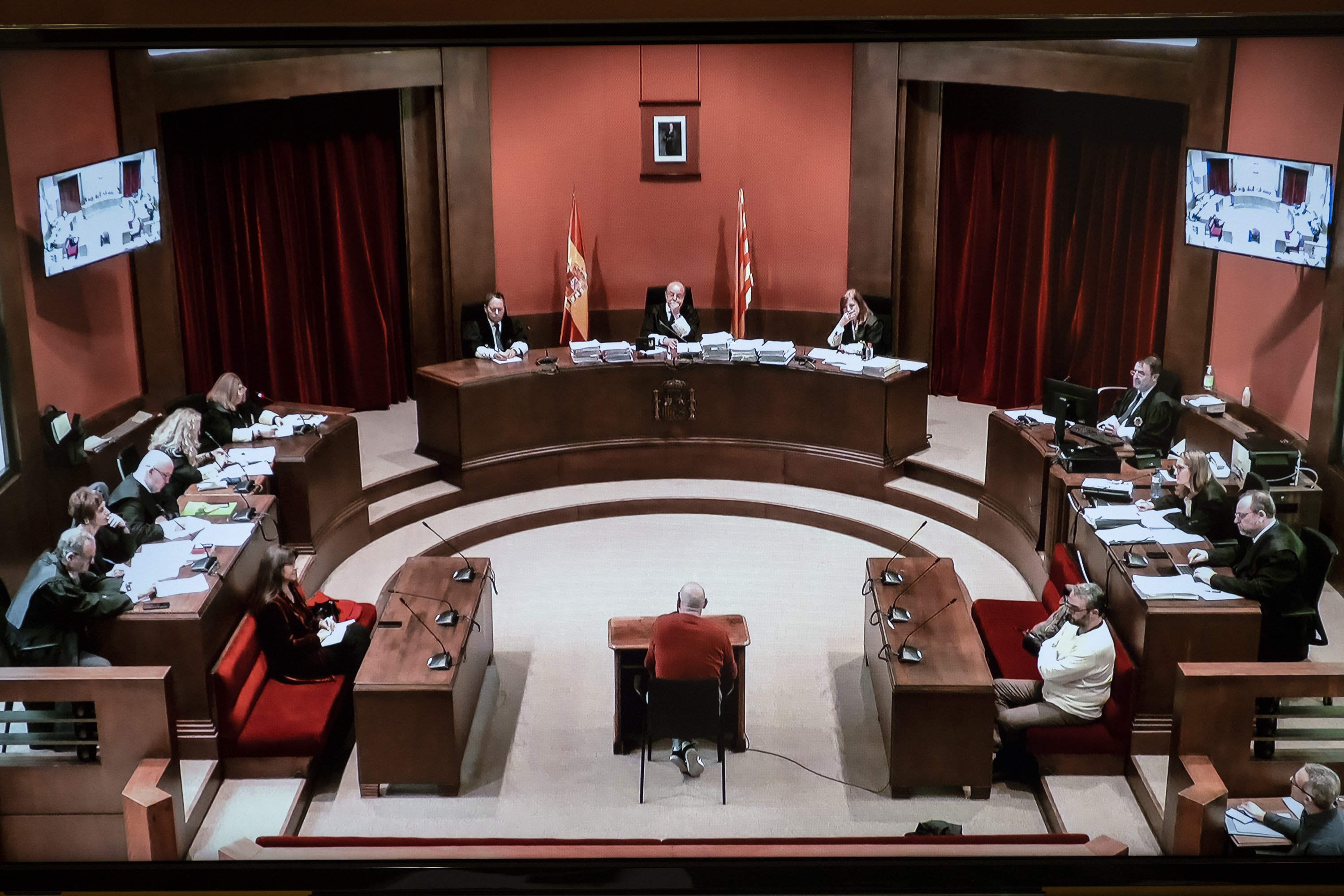Sparks flew this morning at the Catalan High Court (TSJC) during the fourth session of the Laura Borràs trial, centred on the alleged splitting of contracts during the period in which the Junts president and now-suspended speaker of Parliament headed the Institute of Catalan Letters (ILC). Today, the court president, Jesús María Barrientos, starred in two incidents that raised the temperature of the session, one with Borràs's defence team, the lawyers Isabel Elbal and Gonzalo Boye, and another with the prosecutor Assumpta Pujol, as the trial heard testimony from its first witnesses.
The day after the co-defendant in the case, Isaías Herrero, who was tasked with the website work that is the subject of the trial, had incriminated Borràs and asserted that the two of them had agreed that he would update the website under a "covert contract", the prosecutor sought to go more deeply into this line of argument. With questions to different witnesses, she tried to demonstrate that Herrero's work was limited to technical issues, tasks for which he had exclusive responsibility at the Institute. By contrast, Borràs's defence continued highlighting Herrero's expertise in digital literature, with one of the witnesses, Joan Elies, who assumed the direction of the Institute after Borràs, describing him as a "world expert", whom they had to appoint as a jury member for the digital literature prizes awarded in the city of Vinaròs after he had won the prize himself for two consecutive years, in order to prevent him from always winning. "It was as if every year Rafa Nadal was playing against some kids. He was too good," explained Elies.
Barrientos, triggered
Also appearing today was one of Herrero's friends, Marina Arjona, who assisted him with the work for the ILC during a time when he was suffering from depression, and who highlighted the "enormous job" he did, pouring himself into it "with enthusiasm" and dedicating himself to it at "all hours of the day and weekends". It was precisely during the questions to this witness when the lawyer Isabel Elbal directed her questioning to the content of the work and triggered the intervention of judge Barrientos, who cut her off by ruling that it was not the subject of the trial.
Elbal explained that she was attempting to show that Herrero was not just a computer scientist, but an expert in digital literature. "I don't know which way your honour would like me to interrogate. Our right of defence is being curtailed," protested the lawyer, who, however, attempted a new incursion by reformulating the question about the artistic quality of the work of the accused. But the presiding judge once again asked the witness not to answer while demanding from Elbal "a real interest in discovering the reality of the facts". "You can't do it that way," replied Elbal.
Gonzalo Boye took the floor to criticize that this response ratified his initial allegation about a lack of impartiality. The lawyer underlined that the purpose of the questioning was to demonstrate that the hiring of Herrero was not arbitrary, but that it was in line with his specialty. He referred to an icon of Spanish culture to make his point. "If we had hired Camarón de la Isla, we would have done so specifically, because he is Camarón and in this case we have to prove that this gentleman had these qualities," he explained.
Barrientos, however, was adamant, and referred the lawyers to present these arguments in the "next phases of the process", which was interpreted by the defence to mean that the judge had already adopted a resolution on this case, against Borràs, which would pave the way for later appeals.
However, this was not the only moment of tension. The prosecutor also ended up on the receiving end. During the interrogation of the director of the Institute of Catalan Letters who succeeded Borràs in the role, the prosecutor tried to reveal the content of an email that the witness had exchanged with Herrero. Barrientos considered that the question had already been answered and cut off the questioning. "That's sufficient, the court is informed," he asserted. But the prosecutor insisted on asking again, and was cut off again, stating that the question had already been answered. "I didn't hear the answer, but there we are," lamented the prosecutor while the judge cut her off: "It's a matter of listening to the recording again."
Some of the witnesses who passed through the chamber of the TSJC in Barcelona today, including Herrero's brother-in-law, did so to testify that their personal details had been used to cover up the false bids presented by the accused for the alleged tenders.

